Several thousand new, well-paying jobs appear to be bound for Greater Cleveland which could become a hotbed of Electric Vehicle (EV) production for many years to come. That’s based on recent news and tips from a couple of insider sources.
In a NEOtrans article posted Sept. 23, I speculated that EV startup Rivian may be the likely buyer of two Cleveland-area plants mothballed by Ford Motor Co. One is the 1.7-million-square-foot Brook Park Engine Plant No. 2 that closed in 2000 and the other is the 2.1-million-square-foot Walton Hills Stamping Plant that closed in 2015.
That speculation could be a realistic outcome considering several recent developments.
A source familiar with the two factories said that Ford is going through the Ohio Environmental Protection Agency’s (EPA) Voluntary Action Program (VAP) for the vacant Walton Hills plant. The VAP process would start by the end of this year or early next year for the Brook Park Engine Plant No. 2. An Ohio EPA spokesman confirmed this.
The VAP process starts when a property owner submits environmental data for Ohio EPA to review and determine if any environmental contamination exists and needs to be cleaned. Afterwards, if the property is found to be clean enough to meet Ohio EPA standards, the property owner would receive a covenant not to sue.
Ohio EPA says this covenant protects the property owner or operator and future owners from being legally responsible to the State of Ohio for further investigation and cleanup. For the subject of this article, it is important to note this protection applies only when the property is used and maintained in the same manner as when the covenant was issued.
In other words — these are still auto manufacturing plants, albeit vacant, and would remain as auto plants. Furthermore, the source said Ford doesn’t intend to demolish the vehicle production-related structures on these properties. The source didn’t reveal the buyer. The Ohio EPA spokesman said Ford didn’t reveal the buyer to them either.
However, the source said that Ford wanted to get the VAP process done quickly because the buyer for both plants is on a timeline.
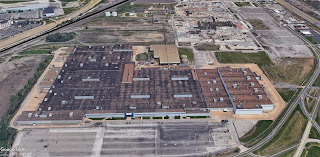 |
| Ford’s 1.7-million-square-foot Brook Park Engine Plant No. 2 (above) that closed in 2000 and Ford’s Walton Hills Stamping Plant (below) that closed in 2015 (Google). |
So if the two properties would continue to produce new vehicles or parts for vehicles under the new ownership, who would the buyer be? Ford wouldn’t sell to a competitor. Instead, it would likely be a firm with whom Ford has a partnership.
Volkswagen is one possibility. Ford and VW announced in January that they are joining forces on delivering medium-sized pickups for global customers starting in 2022. But the production facility for that has already been identified. It will be in Chattanooga, TN.
Then in July, Ford and VW expanded their partnership to include equal investments in Argo AI, an autonomous vehicle platform firm with dual headquarters in Munich, Germany and Pittsburgh, PA.
But the scale of Argo AI’s facilities for producing software and computing equipment will likely be much smaller than two auto plants totaling nearly 4 million square feet. And multiple reports say a single buyer will acquire both of Greater Cleveland’s two vacant Ford plants.
That brings us to Rivian.
The start-up EV manufacturer has developed a revolutionary electric engine and vehicle frames. Rivian’s engines offer remarkable performance of 0-60 mph in three seconds and fossil fuel-competitive ranges of 400 miles or more per charge.
Rivian’s flexible frames will be used not only in its vehicles but also in Ford’s new EV products. Ford was so impressed with Rivian that it invested $500 million in the start-up firm which has yet to mass-produce any vehicles. Rivian has acquired a former Mitsubishi factory outside of Normal, IL and expects to begin mass production of EV pickups and SUVs in 2020.
But that doesn’t address Ford’s desire for mass quantities of Rivian’s so-called “skateboard platform” vehicle frames (the chassis looks like a skateboard) for its as-yet-unidentified new EV line. Nor does it take into account Amazon’s order to Rivian for $10 billion worth of electrically powered delivery trucks.
To consider the scale of production facilities needed, the 3.7-million-square-foot Ford Avon Lake, OH plant produces 370 truck chassis a day. That’s 128,000 to 135,000 chassis per year. That’s just chassis.
Speaking of Avon Lake, Ford and the United Auto Workers announced Nov. 1 a $900 million investment to expand the factory to accommodate a product line that would create more than 1,500 permanent jobs for Greater Cleveland.
This week, Crain’s Cleveland Business reported that the product line would be Ford’s new but unidentified EV — likely the product line that would use Rivian’s skateboard platform.
“Ford intends to develop a new vehicle using Rivian’s flexible skateboard platform,” Ford said in a written statement released in April when it announced its investment in Rivian. “This is in addition to Ford’s existing plans to develop a portfolio of battery electric vehicles” including a Mustang-inspired crossover and a zero-emission version of the F-150 pickup.
Ford’s investment represents a little less than a 10 percent stake in Rivian. As part of the deal, Joe Hinrichs, Ford’s president of Automotive, will join Rivian’s seven-member board.
“I think we have a winner with the Rivian pick” to buy the two Ford plants, said a business investor with ties to Greater Cleveland who is familiar with Rivian. “If in fact Rivian takes the two Cleveland plants from Ford, I’d bet the payment will be some form of equity.”
Putting Rivian’s chassis production facilities and Ford’s new EV production facility close to each other probably makes logistical sense. Also, it is interesting to note that Ford’s facilities in Walton Hills, Brook Park, Avon Lake and even Rivian’s Normal plant are all on Norfolk Southern Corp. rails, simplifying the production process.
Greater Cleveland appears to have the inside lane on the future of automotive technology — EV production — because it has two large, mothballed, yet well-maintained auto-making facilities in close proximity to each other. And it has a workforce that knows how to build stuff, especially cars.
It is rare for a region to get a large, closed automotive plant back up and running, let alone two.
END

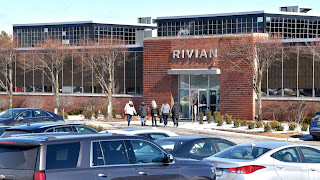
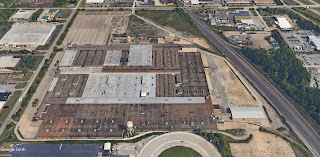
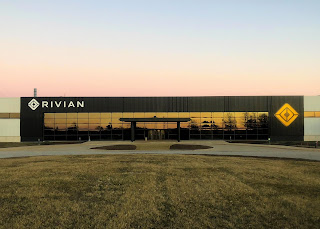
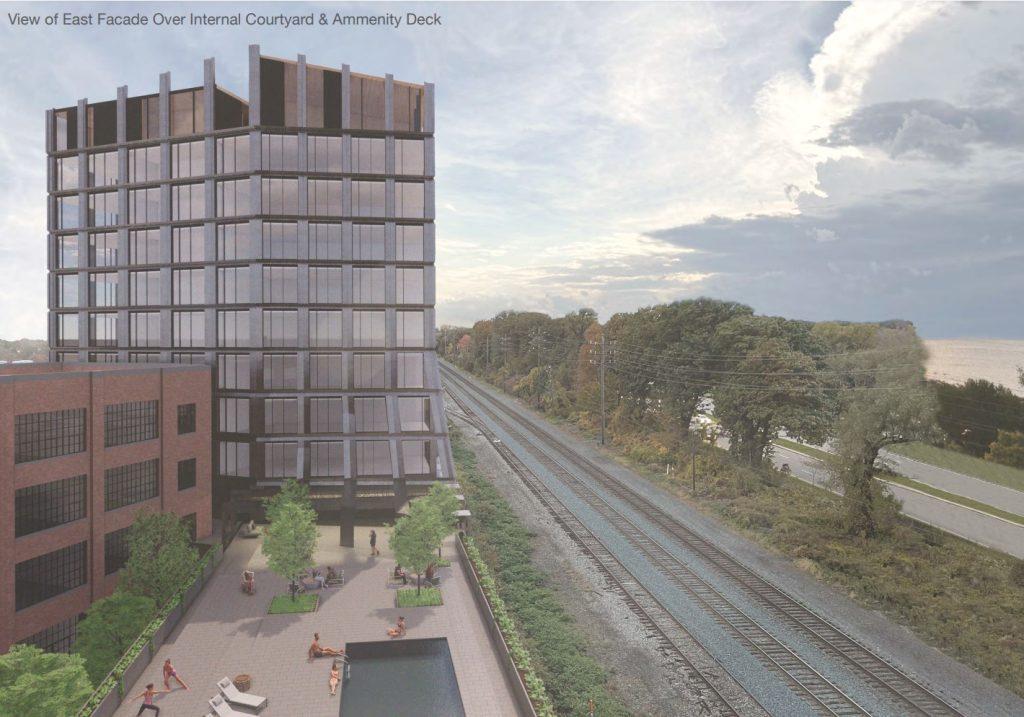

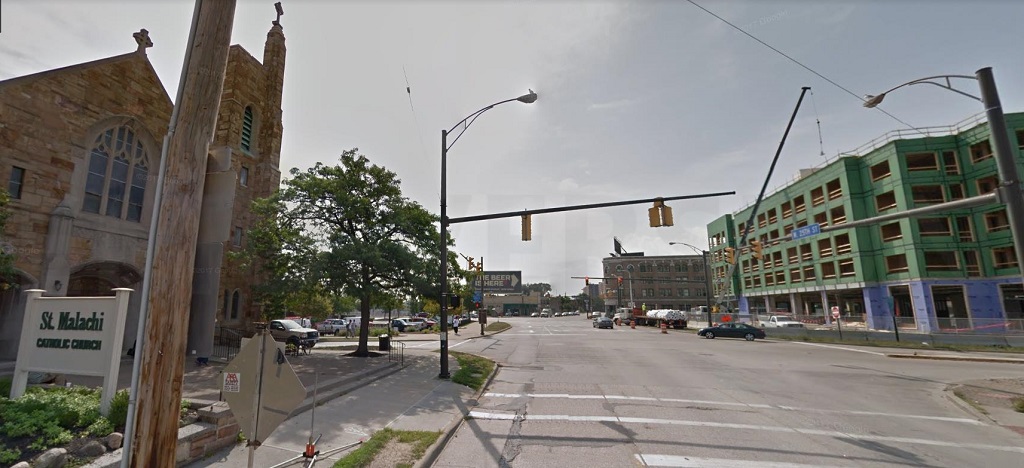
WOW…Two GREAT ARTICLES in one day!!